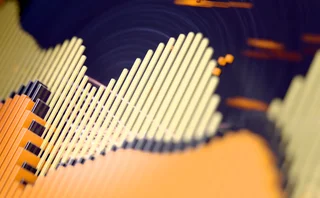
Oil & Products House of the Year: BNP Paribas
Building on its extensive experience in commodities finance, BNP Paribas has made significant progress over the past five years in developing its derivatives business

The bank wins our Oil & Products House of the Year award thanks to its innovative transactions with refiners and oil firms, its growing business with clients such as hedge funds and sovereigns, and its deep commitment to emerging markets.
Even against the backdrop of last year’s financial turbulence, BNP Paribas found innovative ways to meet its clients’ needs through derivatives-based transactions. For example, at a time when the European sovereign debt crisis had caused borrowing costs to surge in many countries, a refiner in southern Europe was seeking to finance an ambitious upgrade project. BNP Paribas created a bespoke prepaid swap for the refiner, allowing it to lock in a favourable middle-distillate refining margin and raise cash for the upgrade.
In another highly customised transaction, BNP Paribas created an off-balance-sheet financing structure for a different European refiner, which allowed the refiner to raise cheap working capital against a significant quantity of crude oil in storage. The bank collateralised the financing structure by holding the title to the crude while giving the refiner the option to buy it back in two years’ time. To comply with local laws requiring the inventory to be held by a domestic company, BNP Paribas created a subsidiary in the country to handle that transaction.
Those types of deals underscore the client focus of BNP Paribas’ commodities team, says Fasil Nasim, the bank’s head of oil sales for Europe, the Middle East and Africa. “We’re more than just a derivatives trading organisation,” he says. “Our relationships expand to advisory and lending; we’ve got more of a consultant-style approach with clients. Our business model is more robust, we don’t have a stop-and-go approach like some of our competitors, and we are less impacted by the regulatory changes that everyone is experiencing in the banking industry. And that’s because we did not build a business based on proprietary trading.”
BNP Paribas has also been active in the exciting new market of sovereign hedging. In 2011, the bank worked on hedging programmes with half a dozen African governments; notably, it participated in Ghana’s initiative to hedge revenues from its giant offshore Jubilee field. Outside of Africa, BNP Paribas has been involved in hedging transactions with state-owned oil companies in the former Soviet Union. “To be successful in these regions you really need to understand the dynamics and the politics behind decision making,” Nasim says. “It’s quite complex. I would say that we are further ahead of any of our competitors in understanding that complexity.”
Clients remember who was there to provide liquidity in every market situation
As part of its deep engagement with emerging markets, BNP Paribas has been actively developing its client business in Russia. Over the past year, Nasim says, domestic Russian producers, refiners and traders have become more likely to link the prices in their contracts to international oil benchmarks, rather than using fixed-price contracts as they did before. That has created a market opening for the bank’s risk management services, which it is handling through its 10-year-old Russian subsidiary.
BNP Paribas has reached out to other types of clients, too, such as global macro hedge funds. The bank strongly built up its hedge fund business over the past year, going from having almost no hedge fund clients 12 months ago to more than 50 active hedge fund clients in the oil and products space today, according to BNP Paribas. In part, that is because the bank won market share from competitors that suffered from severe liquidity issues last year, hampering their ability to make markets, says BNP Paribas’ head of oil trading, Spyros Gkinis.
“When the market collapsed, nobody was providing liquidity and on those mornings we were out there providing liquidity,” Gkinis says. “At the moment, the market is very dynamic and everybody wants to get into the business. But when difficult times come, clients remember who was there to provide liquidity in every market situation.”
Only users who have a paid subscription or are part of a corporate subscription are able to print or copy content.
To access these options, along with all other subscription benefits, please contact info@risk.net or view our subscription options here: http://subscriptions.risk.net/subscribe
You are currently unable to print this content. Please contact info@risk.net to find out more.
You are currently unable to copy this content. Please contact info@risk.net to find out more.
Copyright Infopro Digital Limited. All rights reserved.
As outlined in our terms and conditions, https://www.infopro-digital.com/terms-and-conditions/subscriptions/ (point 2.4), printing is limited to a single copy.
If you would like to purchase additional rights please email info@risk.net
Copyright Infopro Digital Limited. All rights reserved.
You may share this content using our article tools. As outlined in our terms and conditions, https://www.infopro-digital.com/terms-and-conditions/subscriptions/ (clause 2.4), an Authorised User may only make one copy of the materials for their own personal use. You must also comply with the restrictions in clause 2.5.
If you would like to purchase additional rights please email info@risk.net
More on Awards
Best user interface innovation: J.P. Morgan
J.P. Morgan wins Best user interface innovation thanks to its Beta One portfolio solution
Market liquidity risk product of the year: Bloomberg
Bringing clarity and defensibility to liquidity risk in a fragmented fixed income market
FRTB (SA) product of the year: Bloomberg
A globally consistent and reliable regulatory standardised approach for FRTB
Best use of cloud: ActiveViam
Redefining high-performance risk analytics in the cloud
Best use of machine learning/AI: ActiveViam
Bringing machine intelligence to real-time risk analytics
Collateral management and optimisation product of the year: CloudMargin
Delivering the modern blueprint for enterprise collateral resilience
Flow market-maker of the year: Citadel Securities
Risk Awards 2026: No financing; no long-dated swaps? “No distractions,” says Esposito
Pricing and analytics: fixed income – Quantifi
Quantifi delivers high-performance, transparent and adaptable pricing and risk analytics for fixed income and credit markets







